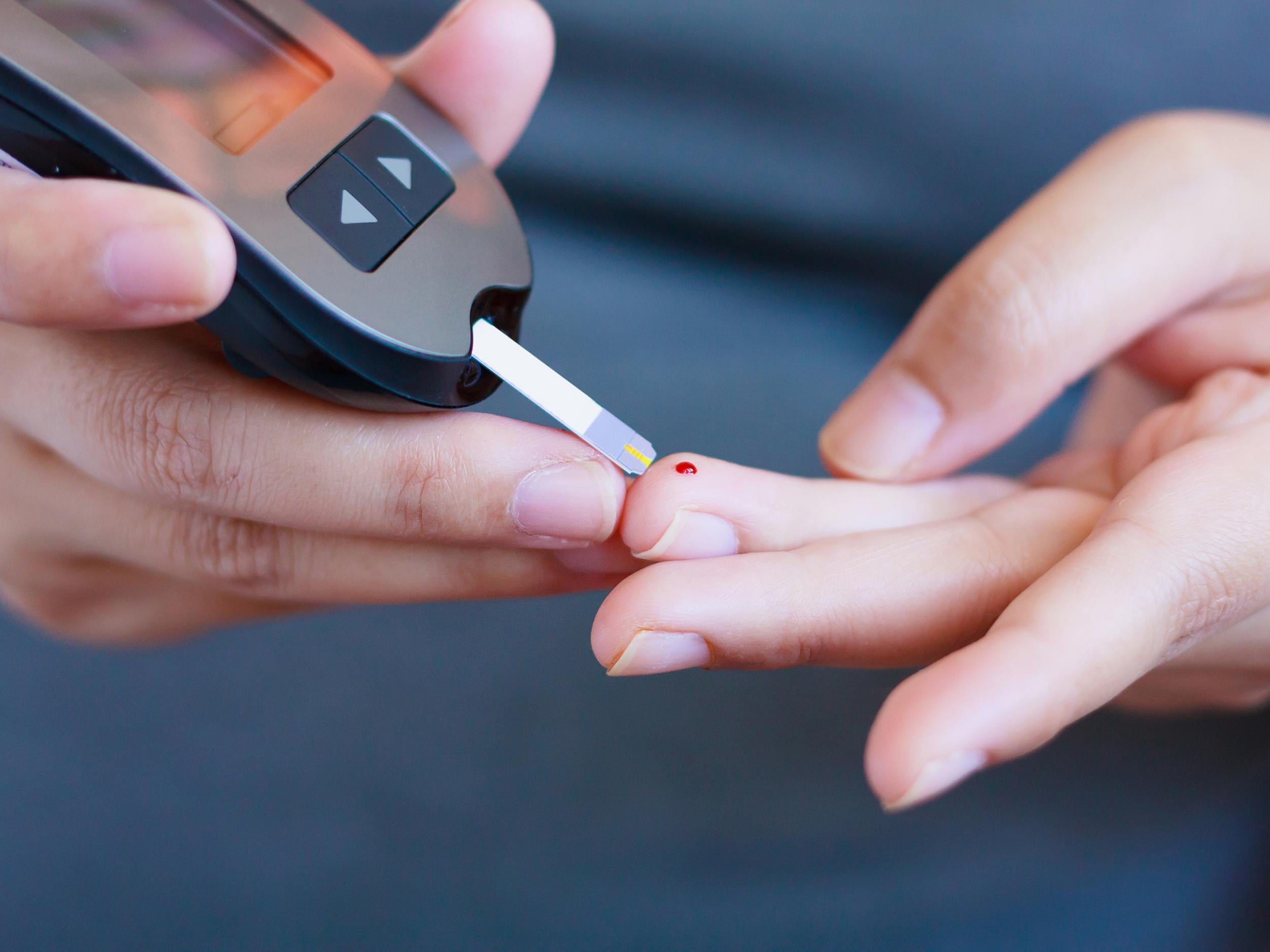New diabetes diagnosis every three minutes, new figures suggest
Data 'illustrates the frightening speed at which the number of people living with type 2 diabetes is increasing', charity chief says

One person is being diagnosed with type 2 diabetes in England and Wales every three minutes, according to new figures.
Data from 2017 revealed 202,665 people were diagnosed with the disease across the two countries in that year, equivalent to 23 people every hour.
Diabetes UK, which conducted the analysis, said the figures revealed the UK’s obesity crisis was fuelling a rapid rise in the number of people living with the condition.
“One person being diagnosed every three minutes illustrates the frightening speed at which the number of people living with type 2 diabetes is increasing,” said Chris Askew, chief executive of Diabetes UK.
“However, three in five cases of type 2 diabetes can be prevented or delayed by eating well, being active and achieving a healthy weight, meaning there is hope for the future.”
Of the new type 2 diagnoses in 2017, 192,245 were in England and 10,420 were in Wales.
Type 2 diabetes is a largely preventable condition, which can lead to sight loss, stroke, kidney failure and loss of limbs. Being overweight or obese puts an individual at greater risk of developing the condition.
“Action must also be taken to tackle the obesity epidemic, which has contributed to the rise of type 2 diabetes,” Mr Askew said.
“While we encourage everyone to eat more healthily and move more, it’s equally important that the government tackle our obesogenic environment, and make the healthy choice the easy choice.”
Dr Partha Kar, associate clinical director for diabetes for NHS England said: “These figures underline the importance of wider action on obesity prevention, and confirm the importance of the action set out in the NHS long-term plan.
“This includes expanding the NHS type 2 diabetes prevention programme so that 200,000 people every year can benefit, and introducing a pilot of very low calorie diets that have been shown to put type 2 diabetes into remission in a significant proportion of those that already have it.”
The Diabetes UK analysis uses data from the NHS Digital National Diabetes Audit.

The number of people living with all types of diabetes in the UK has reached 4.7m, according to figures released by Diabetes UK in February.
With the disease increasingly being diagnosed in children, the charity has warned that it predicts more than 5.5m people will have the condition by 2030.
Experts have called for better education about disease prevention, as well as some of its worst consequences such as blindness and limb loss, to encourage people to act.
Additional reporting by PA
Join our commenting forum
Join thought-provoking conversations, follow other Independent readers and see their replies
Comments
Bookmark popover
Removed from bookmarks